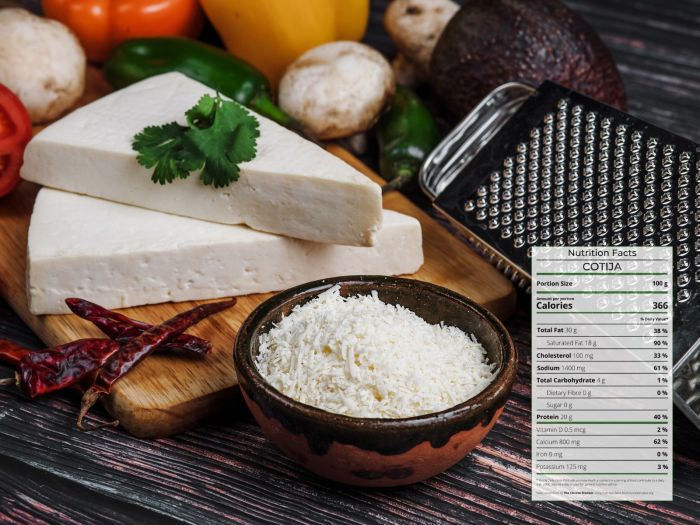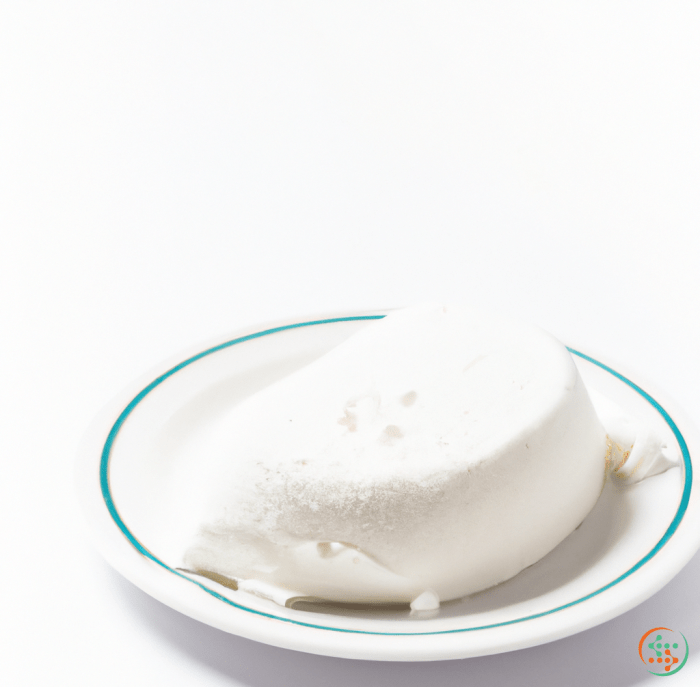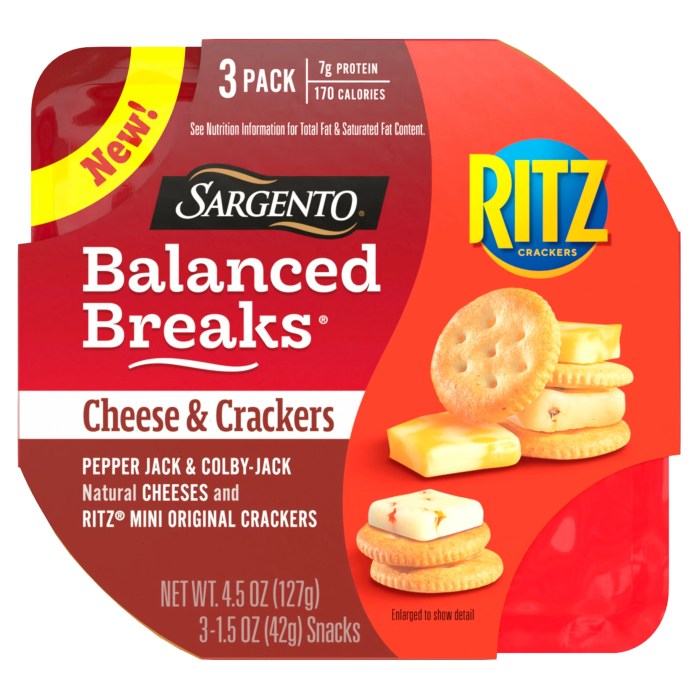Macronutrient Composition and Impact

Cotija cheese nutrition facts – Cotija cheese, with its delightful salty-sharp tang, offers a unique nutritional profile. Understanding its macronutrient composition – fats, proteins, and carbohydrates – is key to appreciating its role in a balanced diet. Let’s delve into the specifics, Palembang style! Apek!
Cotija’s nutritional impact largely stems from its macronutrient balance. While it’s a rich source of fat and protein, its carbohydrate content is negligible. This makes it a popular choice for those watching their carbohydrate intake, especially individuals following low-carb or ketogenic diets.
Fat Content and Health Implications
Cotija cheese is relatively high in fat, which contributes significantly to its creamy texture and rich flavor. However, it’s crucial to differentiate between the types of fats present. Like most cheeses, Cotija contains both saturated and unsaturated fats. Saturated fats, while necessary in moderation, should be consumed responsibly as excessive intake can elevate LDL (“bad”) cholesterol levels, increasing the risk of heart disease.
Conversely, unsaturated fats, particularly monounsaturated and polyunsaturated fats, are considered beneficial for heart health, potentially lowering LDL cholesterol and raising HDL (“good”) cholesterol. The exact ratio of saturated to unsaturated fats in Cotija can vary depending on the cow’s diet and cheesemaking process. A balanced approach, incorporating Cotija cheese as part of a varied and healthy diet, is key.
Think of it like adding a splash of deliciousness to a balanced culinary masterpiece!
Protein Content and its Benefits
Cotija cheese boasts a significant protein content. Protein is an essential macronutrient vital for building and repairing tissues, including muscles. Its high protein content contributes to satiety, meaning it helps you feel fuller for longer, potentially aiding in weight management. For individuals engaging in regular physical activity or strength training, Cotija’s protein can support muscle growth and recovery.
Imagine the satisfying feeling of a post-workout snack – Cotija’s protein power will help you rebuild and recharge!
Cotija cheese, a firm, salty delight, boasts a surprisingly high protein content compared to its crumbly texture. For a quick comparison of portable cheese options, consider checking out the cheese stick nutrition information to see how it stacks up against cotija’s nutritional profile. Ultimately, understanding both profiles helps you make informed choices about incorporating these delicious cheeses into your diet.
Carbohydrate Content and Blood Sugar
Cotija cheese is remarkably low in carbohydrates. This means it has minimal impact on blood sugar levels. This characteristic makes it suitable for individuals managing diabetes or following low-carbohydrate diets. The near absence of carbohydrates ensures a steadier blood sugar level, preventing the spikes and crashes associated with high-carbohydrate foods. It’s a great choice for those seeking a stable energy source without the sugar rush and subsequent slump!
Micronutrient Content and Benefits: Cotija Cheese Nutrition Facts

Cotija cheese, with its delightful sharpness and crumbly texture, isn’t just a culinary delight; it’s also a nutritional powerhouse, brimming with essential micronutrients that contribute significantly to overall health and well-being. Beyond its impressive macronutrient profile, Cotija offers a wealth of vitamins and minerals vital for various bodily functions. Let’s delve into the specific micronutrients and their remarkable benefits.
Cotija cheese, like many other aged cheeses, is a concentrated source of several key vitamins and minerals. Its rich nutritional profile stems from the aging process and the milk from which it’s derived. These nutrients play crucial roles in maintaining optimal health, contributing to everything from strong bones to a robust immune system.
Calcium’s Role in Bone Health and Beyond, Cotija cheese nutrition facts
Calcium is undoubtedly the star micronutrient in Cotija cheese. It’s the primary mineral component of bones and teeth, providing structural support and strength. Adequate calcium intake is crucial throughout life, particularly during childhood and adolescence for optimal bone development and later in life to prevent osteoporosis and maintain bone density. Beyond bone health, calcium plays a vital role in muscle function, nerve transmission, and blood clotting.
A deficiency can lead to weakened bones, muscle cramps, and increased risk of fractures. Cotija cheese, with its high calcium content, offers a delicious and effective way to incorporate this essential mineral into your diet.
Vitamin A and its Contribution to Vision and Immunity
Cotija cheese also contains Vitamin A, a fat-soluble vitamin crucial for maintaining healthy vision, supporting immune function, and promoting cell growth. Vitamin A is essential for the formation of rhodopsin, a light-sensitive pigment in the retina, which allows us to see in low-light conditions. It also plays a key role in the immune system by supporting the function of immune cells and helping the body fight off infections.
A deficiency in Vitamin A can lead to night blindness, dry eyes, and a weakened immune system, making individuals more susceptible to infections.
Other Essential Micronutrients in Cotija Cheese
Beyond calcium and vitamin A, Cotija cheese provides other essential micronutrients, albeit in smaller quantities. These include various B vitamins, phosphorus, and zinc. B vitamins are crucial for energy metabolism, while phosphorus works alongside calcium to build and maintain strong bones. Zinc is essential for immune function, wound healing, and cell growth. The combined presence of these micronutrients contributes to a well-rounded nutritional profile, further enhancing the health benefits of consuming Cotija cheese.
Benefits of Key Micronutrients in Cotija Cheese
The micronutrients in Cotija cheese offer a range of benefits, contributing to overall well-being. Let’s summarize the key advantages:
- Calcium: Supports strong bones and teeth, aids muscle function, and contributes to healthy blood clotting.
- Vitamin A: Promotes healthy vision, strengthens the immune system, and supports cell growth.
- B Vitamins: Essential for energy metabolism and overall cellular function.
- Phosphorus: Works with calcium to build and maintain strong bones and teeth.
- Zinc: Supports immune function, wound healing, and cell growth.
Helpful Answers
Is Cotija cheese suitable for lactose-intolerant individuals?
Cotija cheese, due to its aging process, generally contains less lactose than fresh cheeses. However, the amount of residual lactose can vary, and some individuals with lactose intolerance may still experience symptoms. It’s best to consume it in moderation and monitor your body’s response.
How does Cotija cheese compare to Parmesan cheese nutritionally?
Both Cotija and Parmesan are hard cheeses, but their nutritional profiles differ slightly. Cotija tends to be higher in sodium and fat, while Parmesan often boasts a higher calcium content. The specific nutritional values will vary depending on the brand and production method.
Can I use Cotija cheese in baking?
While Cotija’s strong, salty flavor isn’t ideal for all baked goods, it can add a unique depth of flavor to certain recipes. It works well in savory baked dishes or as a topping for baked potatoes or other vegetables. Experiment cautiously, starting with small amounts.
Is Cotija cheese suitable for a low-sodium diet?
Due to its high sodium content, Cotija cheese should be consumed sparingly on a low-sodium diet. Individuals on restricted sodium intake should carefully monitor their consumption and consider alternatives.


